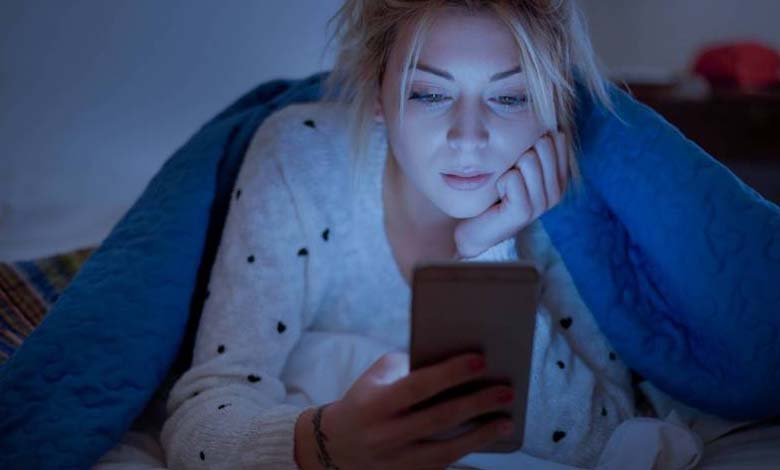Phones and Lack of Sleep: “Surprising” Information About Blue Light

You’ve probably heard that blue light emitted from smartphone screens can keep you awake at night. While the sun is our primary source of blue light, the advent of LEDs and screen use exposes us to artificial blue light in the evening.
Blue light inhibits melatonin, the hormone we naturally produce to help us sleep at night. Therefore, blue light can make sleeping more difficult.
Blue Light Panic
The 2014 Harvard University study that caused panic over blue light screens remains the best evidence that devices emitting light affect sleep.
This study found that using a screen before bed delays the onset of sleep by an average of 10 minutes. It’s not much, but any increase in sleep time is unwelcome.
However, if you dig deeper, you’ll find that participants in the experiment were asked to read for four hours before bedtime on an iPad with maximum screen brightness.
On the other hand, researchers also say that the amount of blue light emitted by smartphone screens is relatively small, and there is increasing evidence that the claims about their impact on sleep are exaggerated.
Melatonin Inhibition
While screens are getting brighter, they are still relatively weak compared to the sun.
If you’re worried about melatonin inhibition, evidence suggests that home electrical lighting is more dangerous than screens.
Some argue that screens pose a greater risk because we stare at them directly for hours, but modern smartphones have adaptive brightness to reduce glare in dark rooms. Few of us turn the screen brightness to the maximum at night.
Although blue light is unlikely to be bright enough to cause significant problems, this doesn’t mean that using a smartphone at bedtime is a good idea.
Content is the Major Problem
Researchers say the main problem is probably the content being displayed. Reading work emails related to upcoming deadlines will obviously cause anxiety, which is strongly associated with insomnia.
We also know that heavy scrolling on social media can have negative effects, including lack of sleep and poor sleep quality.
Being heavily engaged in anything on your phone can make it very easy to stay up later than you should. Many people sleep with their phones within reach.
Some even allow notifications and messages to disrupt their sleep. If you don’t silence your devices at night, they’re likely to disturb you.
-
For night owls… Late sleep increases the risk of diabetes
-
Sleep apnea: It could lead to cognitive impairment, study reveals
Dry Eyes
There is other evidence suggesting that blue light might not be the problem. For example, relaxing in front of the TV or even reading on your phone is more comfortable than playing video games or messaging, although the exposure to blue light is the same.
Another issue is how we use screens, as we tend to stare intently and blink less often, which can cause dry eyes.
-
A Sound you hear before sleep indicates a heart problem
-
Sleeping in this position would reduce the risk of having bad dreams
Whether you call it computer vision syndrome or digital eye strain, most of us have experienced itchy or red eyes, blurred vision, headaches, or neck or back pain at some point, usually after working on a computer.
Blue Light Glasses
An entire industry has emerged due to concerns about blue light exposure. You can buy blue light blocking glasses, special light bulbs, not to mention software options, including dark modes. But does any of this really help, or is it just a form of scare tactics?
-
Sleep and Health: The Impact of Sleep Deprivation and How to Improve Your Sleep
-
Sleep paralysis: Symptoms to recognize
Research says that, theoretically, it might work, but the evidence is not clear. Some studies on blue light filter applications suggest they do not improve sleep, and dark mode might not be as beneficial for your eyes as you think.
Creating a Sleep Routine
If you’re concerned about getting a good night’s sleep, creating a sleep routine is crucial. You should wake up at the same time every day, use sleep diaries to monitor your sleep patterns, only go to bed if you’re sleepy, and get out of bed if you don’t feel sleepy.
A morning walk or a cup of coffee in the garden before starting work can help set your biological clock on the right track.
As with most things in life, balance is key. Ultimately, you should avoid bright light before bed, and taking a break from screens at night might be a good idea, especially for children.
Finally, podcasts and audiobooks are a great way to relax without screens. If you must use your smartphone in bed, stick to enjoyable activities and avoid anything stressful.












